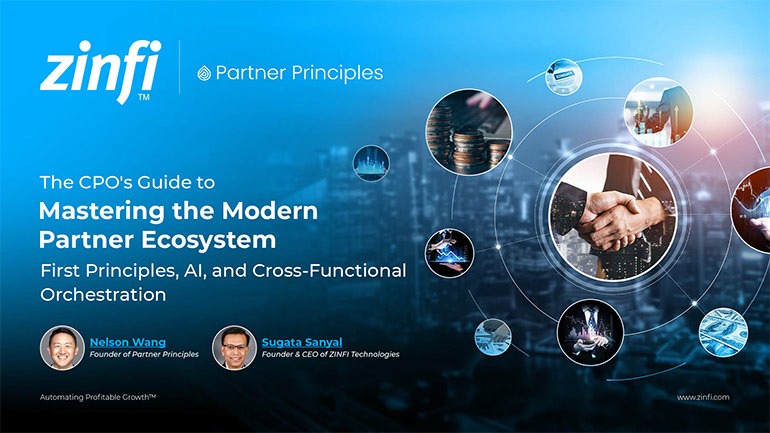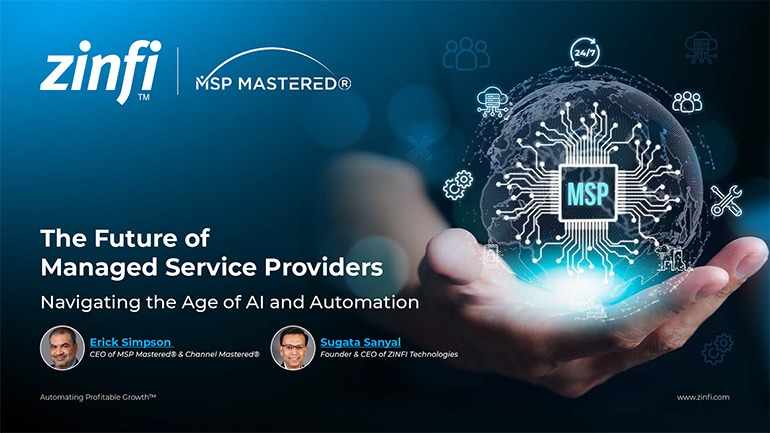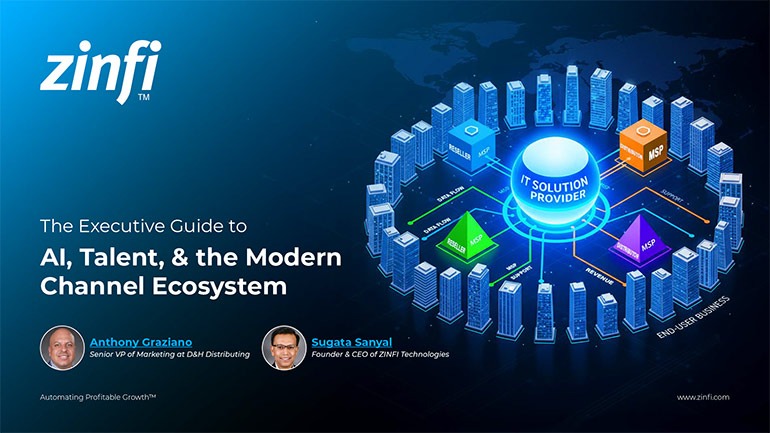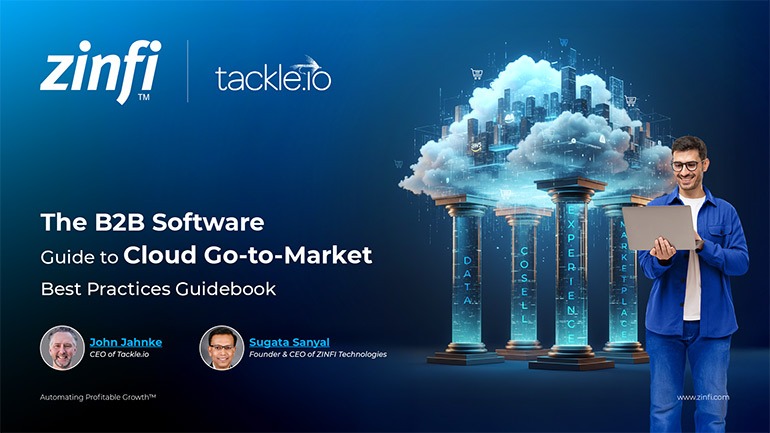Best Practices Articles

Unlocking the Benefits of Partner Collaboration with AI: Strategies and Challenges
Partner collaboration has been a proven strategy for companies seeking mutual benefits in today's highly competitive business environment. However, with the rise of technology, particularly artificial intelligence (AI), partner collaboration can now be taken to the next level. AI can provide numerous benefits to companies collaborating with a partner, including improving recruitment, onboarding, and enabling channel partners.
Recruitment: AI-Powered Partner Matching
Partner collaboration has become crucial to business success in today's competitive landscape. Working with like-minded organizations can increase innovation, knowledge sharing, and growth opportunities. However, finding the right partner can take time and effort, especially regarding recruitment. Fortunately, artificial intelligence (AI) technology advancements have made partner matching more efficient and effective.
AI-powered algorithms can analyze vast amounts of data to identify potential partners with the same values, vision, and goals. By leveraging machine learning algorithms, companies can find partners that align with their business objectives and have a shared vision for success. This approach can be particularly beneficial in industries where collaboration is crucial, such as healthcare, finance, and technology.
One of the critical benefits of AI-powered partner matching is the ability to analyze social media data. Social media platforms like LinkedIn, Twitter, and Facebook have become popular tools for networking and building professional relationships. AI algorithms can analyze social media profiles to identify potential partners with similar interests, expertise, and experience. By doing so, companies can quickly and easily find partners active in the same industry and passionate about the same things.
Another benefit of AI-powered partner matching is that it can save companies time and money. Partner matching can be a time-consuming process that requires many resources. Companies can automate the partner-matching process using AI and reduce the time and resources needed to find the right partner. This approach can also reduce the risk of errors, as AI algorithms can quickly identify potential partners that meet the company's criteria.
AI-powered partner matching can also lead to more effective collaborations. By partnering with organizations with the same values and goals, companies can build stronger relationships and achieve better outcomes. This approach can also lead to increased innovation and knowledge sharing, as partners can share ideas and expertise to drive growth and success.
In conclusion, AI-powered partner matching is a game-changer for recruitment. It can streamline finding the right partner, save time and resources, and lead to more effective collaborations. Companies that embrace AI technology in their partner matching process can gain a competitive advantage and position themselves for long-term success. So, if you want to collaborate with like-minded organizations, consider leveraging AI-powered partner matching to find the perfect partner for your business.
Onboarding: AI-Powered Personalized Training
Partner collaboration is an excellent way for companies to achieve common goals. One area where partner collaboration can be highly effective is onboarding new channel partners. Onboarding refers to integrating new partners into an organization and training them on its products, services, and processes.
When two or more companies work together, they can create a personalized onboarding track specific to their brand or products. This approach can help new channel partners better understand the products and services they will be selling, as well as the unique features and benefits of those products.
Artificial intelligence (AI) can also play a significant role in this process. AI-powered personalized training can analyze the learning style of the new channel partner and create a customized training program tailored to their needs. This approach can help companies to deliver more effective training that is more engaging and easier to understand.
For example, AI-powered software can analyze the speed at which a new partner learns and adjust the training accordingly. If a partner needs help understanding a particular concept, the software can slow down the training pace and provide additional explanations and examples. Similarly, if a partner is quickly mastering the material, the software can speed up the pace of the training and provide more challenging exercises.
AI-powered personalized training can help companies ensure that their new channel partners are well-equipped to promote and sell their products. This approach can also help companies reduce the time and resources required for training and improve the overall quality and effectiveness of the training program.
Partner collaboration and AI-powered personalized training are potent tools for onboarding new channel partners. By working together and leveraging the latest technology, companies can create a training program tailored to their partners' needs, providing the knowledge and skills they need to succeed. This approach can help companies build stronger relationships with their partners and increase sales and revenue in the long term.
In conclusion, partner collaboration and AI-powered personalized training are essential to a successful onboarding process. Companies that invest in these tools and technologies can create a more effective training program tailored to their partners' needs and provides the knowledge and skills they need to succeed. This approach can help companies build stronger relationships with their partners and increase sales and revenue in the long term.
Enabling Channel Partners: AI-Powered Co-Branded or Multi-Branded Training
Partner collaboration is a critical component of any successful business strategy. Working with channel partners can help companies to expand their reach, build brand awareness, and increase sales. However, ensuring that these partners are equipped with the necessary tools and knowledge to promote and sell products effectively is essential. AI-powered co-branded or multi-branded training can help companies achieve this goal by providing targeted training to channel partners.
Co-branded or multi-branded training involves collaborating with partners to provide training that incorporates both companies' branding. This approach allows companies to leverage their partners' strengths and build a stronger relationship with them. AI-powered training takes this collaboration to the next level by providing personalized training tailored to each partner's specific needs.
For example, AI-powered software can analyze the sales data of a channel partner to identify areas where they may need additional training. Based on this analysis, the software can provide customized training on improving their sales performance, including product knowledge, sales techniques, and other relevant information. This approach ensures that each partner receives training tailored to their unique needs, which can help them sell more effectively and ultimately generate more revenue for the company.
One of the critical benefits of AI-powered co-branded or multi-branded training is that it is scalable. This means that companies can provide training to many partners simultaneously without sacrificing the quality of the training. By using AI to automate certain aspects of the training process, such as assessment and feedback, companies can provide consistent and high-quality training to all their partners, regardless of their location or size.
Another benefit of this approach is that it can help to build stronger relationships with channel partners. By providing personalized training tailored to each partner's needs, companies can demonstrate their commitment to the success of their partners. This can help build trust and loyalty, leading to long-term partnerships and increased sales.
In conclusion, partner collaboration is essential for any business that wants to expand its reach and increase sales. Co-branded or multi-branded training is a powerful tool that can help companies to achieve this goal by providing personalized and targeted training to channel partners. By leveraging the power of AI, companies can provide scalable, high-quality training tailored to each partner's unique needs. This approach can help build stronger relationships with channel partners, leading to increased sales and revenue.
Challenges in AI-Powered Partner Collaboration
Partner collaboration is an essential aspect of modern-day business operations. With the rapid advancements in technology, AI-powered partner collaboration is gaining momentum. AI's numerous benefits drive this trend to partner collaboration, such as increased efficiency, enhanced communication, and improved decision-making. However, implementing AI technology in partner collaboration has its challenges.
One of the primary challenges of AI-powered partner collaboration is the need for specialized skills. Implementing AI technology requires personnel with specialized skills in AI, data analytics, and machine learning. Companies must have the right personnel with the necessary skills to implement AI in their partner collaboration efforts. A lack of specialized skills in AI can lead to the failed implementation of AI-powered solutions, resulting in wasted resources and time.
Another challenge that companies face when implementing AI in partner collaboration is the need for high-quality data. AI-powered algorithms require large amounts of high-quality data to be effective. Companies must ensure they can access high-quality data to make the most of AI in their partner collaboration efforts. The data must be accurate, relevant, and up-to-date, as AI-powered algorithms rely heavily on data quality to make informed decisions.
Companies can invest in data governance solutions to overcome the data quality challenge. Data governance ensures that the data used in AI-powered partner collaboration efforts are accurate, consistent, and meets regulatory compliance requirements. It involves the creation of policies, procedures, and guidelines that govern data collection, storage, and usage.
Additionally, companies can leverage data analytics tools to extract valuable insights from their data. Data analytics tools can help companies identify patterns and trends in their data, which can be used to optimize partner collaboration efforts. These insights can help companies make informed decisions, improve communication, and enhance efficiency in their partner collaboration efforts.
Another challenge that companies face when implementing AI in partner collaboration is the need for security measures. As partner collaboration involves sharing sensitive information with partners, ensuring the data is secure is essential. Companies must ensure that their AI-powered solutions are secure and comply with data protection laws and regulations.
To overcome the security challenges, companies can invest in secure cloud-based solutions that encrypt data in transit and at rest. They can also implement multi-factor authentication and access controls to ensure that only authorized personnel can access sensitive data.
In conclusion, AI-powered partner collaboration is a game-changer for modern-day businesses. It enhances communication, improves decision-making, and increases overall efficiency. However, it comes with its fair share of challenges, including the need for specialized skills, high-quality data, and security measures. Companies must address these challenges to fully reap the benefits of AI-powered partner collaboration. Companies can overcome these challenges by investing in data governance solutions, data analytics tools, and secure cloud-based solutions and optimizing their partner collaboration efforts.
Conclusion
Partner collaboration is a powerful tool for companies that want to achieve mutual benefits, and with the rise of AI technology, it can now be taken to the next level. AI can provide numerous benefits to companies collaborating with partners, including improving recruitment, onboarding, and enabling channel partners. However, companies must ensure they have the necessary skills and access to high-quality data to maximize AI in their partner collaboration efforts. By leveraging AI in partner collaboration, companies can gain a competitive advantage in their industry by offering more comprehensive solutions to their customers.
For more information, please check this article.
Best Practices Guides
 First Principles Drive Modern Partner Ecosystem Success Best Practices
First Principles Drive Modern Partner Ecosystem Success Best PracticesDownload for FREE
 The Future of Managed Service Providers: Navigating the Age of AI and Automation
The Future of Managed Service Providers: Navigating the Age of AI and AutomationDownload for FREE
 Modernizing Channel Marketing: AI and Ecosystem Enablement Best Practices
Modernizing Channel Marketing: AI and Ecosystem Enablement Best PracticesDownload for FREE
 The Channel’s Shift to Partner-Led With AI Best Practices
The Channel’s Shift to Partner-Led With AI Best PracticesDownload for FREE
 Hyperscalers, ISVs, and AI: Shaping the Future of B2B Software Distribution
Hyperscalers, ISVs, and AI: Shaping the Future of B2B Software DistributionDownload for FREE
 Definitive Guide to a Partner Ecosystem-First Sales Strategy
Definitive Guide to a Partner Ecosystem-First Sales StrategyDownload for FREE
 The Partner-Led Digital and AI Transformation Best Practices
The Partner-Led Digital and AI Transformation Best PracticesDownload for FREE
 Startup Talent Recruitment: Hiring Missionaries, Not Mercenaries
Startup Talent Recruitment: Hiring Missionaries, Not MercenariesDownload for FREE
 The Future of Partner Relationship Management with AI in Partnerships
The Future of Partner Relationship Management with AI in PartnershipsDownload for FREE
 Cybersecurity for the 99%: Strategies from the Frontline
Cybersecurity for the 99%: Strategies from the FrontlineDownload for FREE
 Mastering Partner Relationships: A Strategic Approach to Business Growth
Mastering Partner Relationships: A Strategic Approach to Business GrowthDownload for FREE
 Mastering Partner Relationship Management: Keys to SaaS Channel Success
Mastering Partner Relationship Management: Keys to SaaS Channel SuccessDownload for FREE